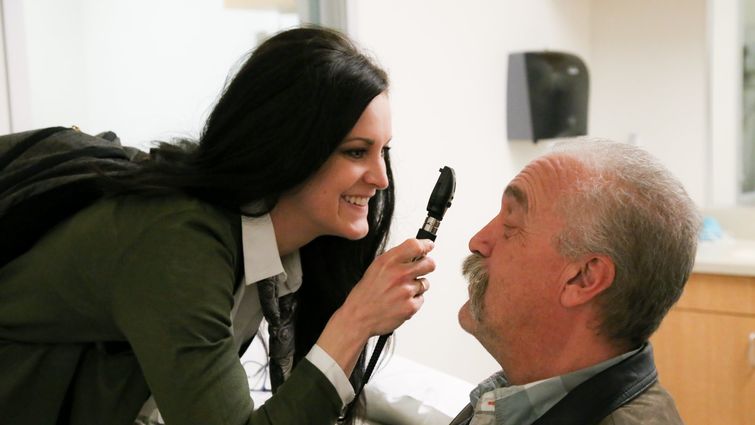
Medical student and parent
If your child has been accepted to medical school, they’ve taken the first step in a challenging and rewarding journey. Learning about the human body and how to care for patients is time-consuming and difficult, but medical school will be a thrilling and satisfying time for your student.
In addition to being a time of growth, your student will face challenges along the way. As a parent, you will have opportunities to support your student throughout their medical school experience.
Roger Hadley, MD, dean of Loma Linda University School of Medicine, shares seven things that may help you support your student on their journey.
1. Talk to them about what they’re studying.
Talking to your students about the materials they’re studying can promote their understanding of the course and be a great way to connect with your student. Hadley recommends asking them questions such as, “What has been challenging this week?” or “Have there been any especially rewarding concepts you’ve enjoyed learning about?”
2. Encourage them.
As a parent, you’ve taken on the responsibility of being a support system, cheerleader and soundboard for stressful days. “It’s not only crucial to encourage your child in what they’re doing, but it’s also important to encourage them to use the resources available to help them at the school,” Hadley says.
The School of Medicine at Loma Linda University has a faculty mentoring program, which provides spiritual and emotional support and motivation. “Many schools have mentorship programs in which mentors regularly visit with students,” Hadley says. “At Loma Linda, this includes encouraging them on their walk with God through school.”
3. Urge them to seek help if they’re struggling.
Hadley says it’s important to remind your child they are loved, and prompt them to access the resources available to them on campus. Many schools have learning skills specialist who can help students with academic growth. “There are also group tutors and individual tutors available to help students navigate more difficult school subjects,” Hadley says.
4. Be flexible.
Ask ahead of time if your child can participate in events instead of expecting them to be available. It may be difficult, but they might not be able to attend each vacation or family gathering. Hadley says to make it clear that it’s okay if they can’t make it, and that you support them putting school first. “This is often one of the most challenging aspects for parents, but it’s important to avoid making students feel guilty,” Hadley says. “Instead, work to plan around their schedule when able.”
5. Give them space.
Your child is going to be very busy: medical school academics are rigorous and responsibilities are increased. “In the first few weeks after your student begins school, keep your phone or email conversations brief and encouraging,” Hadley says. “Give your child plenty of notice before a visit so they can plan ahead and make the most out of the time with family.”
6. Send care packages.
You can get your child groceries, healthy snacks or gas cards. “Anything that may help take stress off of your child can make a big impact,” Hadley says. “While you cannot take all the stress away, it makes a big difference to remove some of the smaller stresses.” This can also include letters of motivation to let your child know they have a support system backing them up.
7. Connect with other parents.
Talk about your journey as a medical student’s parent with others who understand. “Ask questions, or ask for tips from other parents — you’ll find that you have a lot in common and can support each other,” Hadley says. Building a community with other parents of medical students can make the process easier, and understanding that your student is not alone can provide a sense of comfort, he says.
Henry Lamberton, PsyD, associate dean of student affairs at Loma Linda University School of Medicine, says he and the other deans at the school work to make sure students know about available resources. “The student assistance program, which includes counseling at no cost, is one resource we recommend students use,” Lamberton says. He also says the physician vitality program can help students along their journey.
The psychiatrists who work with students are separate than psychiatrists who may evaluate the students at any point in their student and resident careers. This is to ensure confidentiality. “All athletes who excel have coaches, so we urge students to find a coach to encourage you and keep you accountable,” Lamberton says.
If you have concerns about your student, please encourage him or her to reach out to one of the many sources of support available at the Loma Linda University School of Medicine.
“We are here to support the students in any way we can on their journey to becoming physicians,” Lamberton says.
